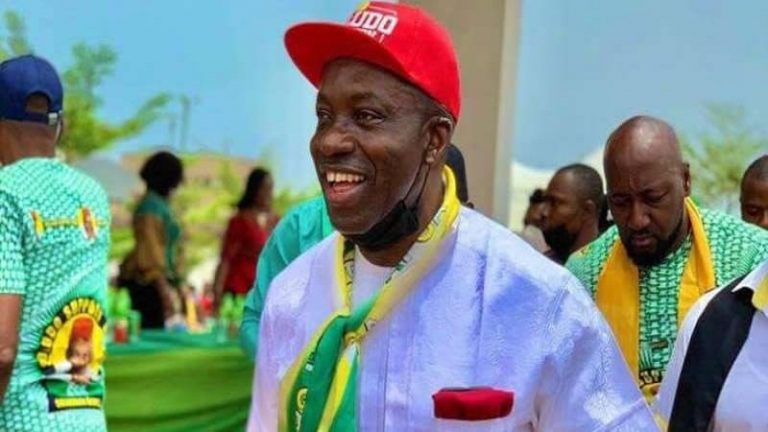
Governor Chukwuma Soludo of Anambra State has approved the release of N6.154 billion as counterpart funding to unlock N12.3 billion in Universal Basic Education Commission (UBEC) intervention funds — a move that sets Anambra apart from many Nigerian states that have failed to draw down on these constitutionally available resources.
The approval, announced by the Chairperson of the Anambra State Universal Basic Education Board (ASUBEB), Dr. Vera Nwadinobi, marks a significant departure from a worrying national trend, especially among governors in the Southeast, where public basic education continues to suffer despite the presence of UBEC funds.
Nwadinobi said the matching funds from UBEC would be channeled into a wide range of infrastructure and learning upgrades across the state’s primary and junior secondary schools — including construction of new classrooms, renovation of existing blocks, supply of desks, chairs, and ICT tools, as well as installation of water and sanitation systems, fencing of schools, and provision of agricultural and sports equipment.
Register for Tekedia Mini-MBA edition 19 (Feb 9 – May 2, 2026).
Register for Tekedia AI in Business Masterclass.
Join Tekedia Capital Syndicate and co-invest in great global startups.
Register for Tekedia AI Lab.
“These initiatives are intended to create a more conducive environment for teaching and learning in our schools,” she said, praising Soludo’s “commitment to foundational education” and his willingness to unlock billions that have been lying fallow.
Soludo’s decision represents a rare sense of urgency among Nigerian governors to address a decades-old failure: the unwillingness of states to redeem their UBEC counterpart obligations, a practice that has left the country’s public schools in ruins. The trend thrives amid the unabating menace of out-of-school children, particularly in the northern part of the country.
In 1999, then President Olusegun Obasanjo established the Universal Basic Education Commission (UBEC) as part of Nigeria’s push to meet global targets under the Education for All (EFA) and Millennium Development Goals (MDGs) initiatives. In line with the UBE Act of 2004, the commission is funded by 2% of Nigeria’s Consolidated Revenue Fund (CRF), with the condition that states must provide counterpart funding to access their share.
In 2023, N263 billion was allocated to UBEC as part of statutory transfers. Another N103 billion followed in 2024. But despite these provisions, UBEC revealed in December that over N135 billion had not been accessed by state governments — funds that could have transformed classrooms hired more teachers, and equipped schools across Nigeria.
Observers say the failure to redeem counterpart funding is driven by a combination of poor political will, budgetary misalignment, and in some cases, outright neglect of basic education.
The Anambra governor’s latest intervention is part of a larger vision embedded in his N606.99 billion 2025 budget proposal, which prioritizes capital investments — with N467.5 billion (77%) going to infrastructure and institutional development. Education alone is set for a 101% increase over 2024 figures.
The budget earmarks:
- N11 billion for the construction and equipping of smart schools
- N22 billion for institutional upgrades
- N3 billion for student loans and bursary schemes
- N1 billion in supplementary funds for secondary schools
- N250 million in transport support for schoolchildren
These allocations build on earlier reforms, including recruiting over 3,000 teachers, offering free education to SS3 students, and equipping 60 STEM-focused schools in 2024. The governor has repeatedly said his administration is working toward transforming Anambra into a knowledge-driven economy.
“Our goal remains to provide free and qualitative education for every child in Anambra, to enable them to succeed. We will maintain our free education policy and will continue to pay the newly agreed operational costs for schools. We are transforming twenty-two secondary schools into smart schools, setting a standard for what an ideal school should be in Anambra. We will continue the aggressive upgrade of infrastructure in our primary schools through the ASUBEB program.,” Soludo said during his budget presentation last November.
Will Other States Follow?
While Anambra has moved to access three years’ worth of UBEC grants in one sweep, dozens of states have yet to claim even a single year’s allocation. This inaction undermines national targets such as 100% enrollment and retention of school-age children, gender parity, teacher certification, and conducive school environments — all of which were supposed to be achieved by now.
According to UNICEF, Nigeria has approximately 10.5 million children aged 5-14 not in school, making the country home to one in every five of the world’s out-of-school children.
Against this backdrop, UBEC’s matching grants were designed to incentivize states to invest more in basic education, not replace their responsibilities. However, the continued refusal by many states to fulfill their own end of the funding arrangement has turned the model upside down.



